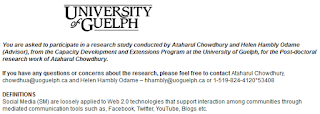In late 2011 when Heineken International bought
over Haiti’s national brewery, Brasserie Nationale d’Haïti (BRANA S.A.), local producers
and consumers were unsure as to how the change in leadership would affect them.
One of the terms was that Heineken would purchase 60% of its ingredients
locally, replacing imported malted barley with local sorghum. This created an
outstanding yet daunting prospect for Haitian sorghum farmers, as most grew
sorghum on small, individual plots and were not equipped to meet the large
demands of the international brewing giant.
The creation of SMASH, the Smallholder Alliance
for Sorghum in Haiti, rendered tackling this challenge possible. SMASH is a
public-private partnership between USAID, the Inter-American Development Bank,
and the national Haitian brewery BRANA, S.A. In collaboration with Dimagi, a
social enterprise that designs mobile technology for use in low-resource
settings, SMASH implemented a mobile application program for sorghum farmers
and agricultural extension agents. The application helps extension agents stay
in contact with farmers, monitor crop quality, and respond to challenges such
as pests and destructive weather. The application also tracks sorghum from the
field all the way to the grain storage center in Port-au-Prince, which had
initially been seen as one of the major obstacles in verifying and ensuring
that the quota would be met. After the introduction of the application,
extension agents reported that they experienced a 90% decrease in the time they
spent filling out data collection forms, allowing them to spend more time with
farmers.
SMASH and its mobile technology program have
fostered a sustainable arrangement in which sorghum farmers gained a reliable
customer, Heineken followed through on its promise to source local ingredients,
and consumers enjoy access to a quality product (in this case, the
non-alcoholic nutritional beverage Malta-H). The data collected and generated
by the application informs future business decisions for all parties involved
and aids in monitoring of both extension and production activities. The next
goal on the horizon for SMASH is to shift to a paper-free purchasing process
for farmers, which should enhance the speed and verifiability of transactions.
SMASH serves as a positive example of the ways in which public and private
institutions, smallholder farmers, agricultural extension, and technology
developers can coalesce to improve both products and livelihoods in the
Caribbean.
Source:
https://www.rti.org/impact/smallholder-alliance-sorghum-haiti-smash


